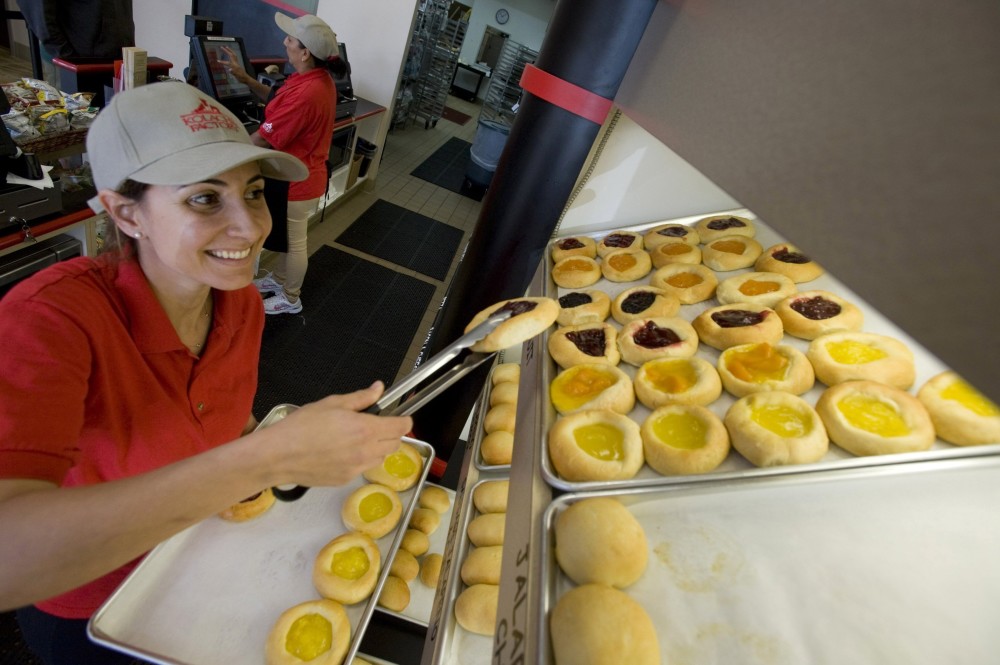By Cathie Anderson
The Sacramento Bee.
From Sylvan Learning Centers to Tilted Kilt to Jimmy John’s, franchisors of all types regularly announce expansions in the Sacramento region. The prospect of launching such a business can be tempting to individuals forced into early retirement by corporate downsizing.
Many franchisors actively recruit retirees because they value their past experience in the business world. Google the words “franchise retirees,” and you’ll come up with dozens of news articles documenting the trend.
Although potentially rewarding, franchising also can be dangerous territory for novices. Serial franchisee Tony Lutfi and other experts recommend that people identify trusted consultants and do at least three to six months of homework to determine the right concept for them.
“In most cases, a potential franchisee has some money set aside, or they have some financing arranged, and they go to the broker and the broker finds them a business to buy,” Lutfi said. “Or, they meet a franchisor and the franchisor will tell them, ‘We will give you a territory to open a business.’ Both of these scenarios are very risky because … they don’t understand why the business is being sold or they really have no experience in selecting a site or attracting customers or even establishing the advertising.”
Lutfi’s Sacramento-based MarLu Investment Group started out with only two restaurants — a Church’s Chicken and a Long John Silver’s — but it now operates a stable of brands that include Sears Hometown & Outlet Stores, TGI Fridays and Jack in the Box.
“I started out as a graveyard employee, and from there, I learned the business,” Lutfi said. “It took me from 1976 to the early ’90s — 15 years in business — before I even had my first chance at franchising. I worked every position. I became an assistant manager, a manager and eventually a district manager, a director of marketing and a director of training. It allowed me to learn and make mistakes.”
Not all franchisees have the benefit of Lutfi’s real-world experience. For these folks, Sacramento attorney Shane Singh of Lewis Brisbois Bisgaard & Smith has this advice: Don’t fall in love with one particular business deal and then put on blinders. All too often, first-time franchise buyers have seen only a two-page sales document and have fallen under the siren song of a seller or broker.
Every penny spent on trusted advisers will save a franchisee exponentially more money in the long-term, Lutfi said. He offered several ways to find consultants:
— Seek out successful, experienced franchisees, and when you meet someone you trust, ask them for recommendations.
— Attend and network at industry conferences such as the Multi-Unit Franchising Conference; the Franchise, Finance & Growth Conference; or the National Restaurant Association show. “There’s the cost of travel,” Lutfi said, “but the actual conference is very little money when you consider how much knowledge you gain there.”
— Read industry journals such as Franchise Times, QSR Magazine or Nation’s Restaurant News. Thinking about a franchise outside the food industry? That’s OK, Lutfi said, virtually every industry has a trade magazine. Search the Internet to find it.
— Find a manager who has worked in the field for 15 to 20 years, and see if you can lure them to your enterprise by offering a small percentage of profits, in addition to a salary.
“You’ve got to understand the business well enough that you know if it is performing up to the expectations of the customers,” Lutfi said. “Otherwise, by the time you discover that your business is failing, it’s too late to fix.”
Budding entrepreneurs often don’t realize that they can get free advice and mentoring through organizations such as SCORE and the Women’s Business Center. SCORE mentors such as Grass Valley’s Bob Gius explain hard facts, like how a 5 percent franchising fee could eat up 60 percent of your profit or how you could still end up paying fees even when your business is losing money.
It might seem that Gius and Lutfi and Singh are discouraging potential franchises, but there could be nothing further from the truth. All point to the thousands of franchises flourishing around the globe, and they note that franchises offer the advantage of a product and plan that has been tested with consumers.
Their point is merely that potentially franchisees stand a better shot at success if they do their due diligence and build the right team.
“It’s not as simple as rolling up your sleeves and going to work every single day,” Lutfi said. “The work ethic is important, but you must have the knowledge and the experience. Those only come with time or through others.”
As you dissect a franchise opportunity, he and Gius said, be sure to talk with franchisees who are struggling. The company list might not include these names, but ask a few questions and you will find them. Also, look for a franchise that you can afford, support and understand. The first year can be tough, Gius said, so establish a cash cushion that is greater than what the franchisor advises.
“I had so many people, especially in the last recession, come to me and say, ‘I always wanted to open up a restaurant,'” Gius said. “It was frightening. I had a guy who had been a machinist for 22 years, who lost his job. He didn’t have much money left. He’d spent all his severance, and he wanted to open a restaurant. I just said, ‘No, that is not a good idea.’ ”














































































































































































































































































































































































